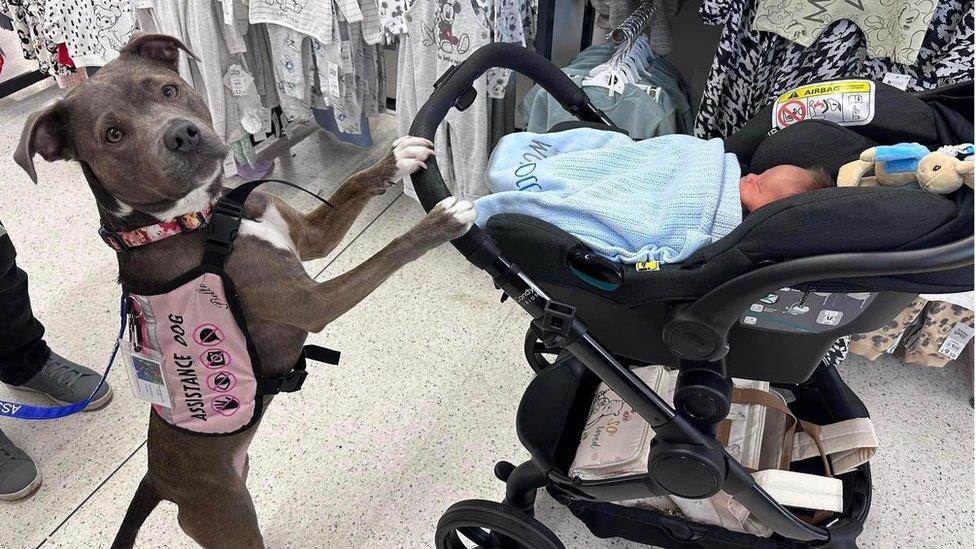Dogs having a 'phenomenal' effect on patients
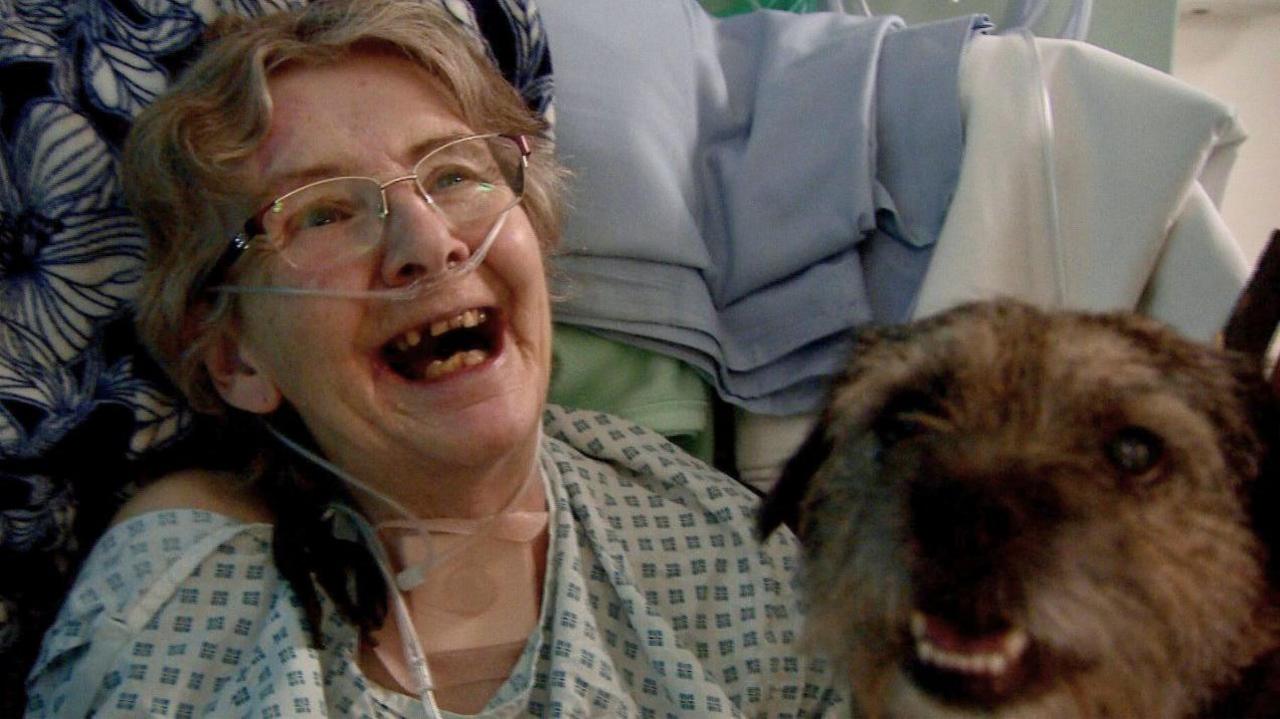
Hugo brings joy to Stephanie Lavarack on a visit to the complex rehabilitation unit at Castle Hill Hospital, near Hull
- Published
Four-legged volunteers have been praised by hospital staff for their "miraculous" effect on patients.
Eleven therapy dogs visit the wards at Hull Royal Infirmary and Castle Hill Hospital in East Yorkshire.
One 20-year-old patient, who was left unconscious and unable to move after a car crash, reached out to stroke Barney, an eight-year-old cockerpoo visiting his bedside.
Rachael Hardcastle-Pearce, the head of voluntary services for the hospitals, said the impact on patients and staff was "phenomenal".
The eleven volunteer dogs have amassed more than 800 hours' service in the past two years.
They were recruited by the charity Pets as Therapy (PAT) and work two-hour shifts.
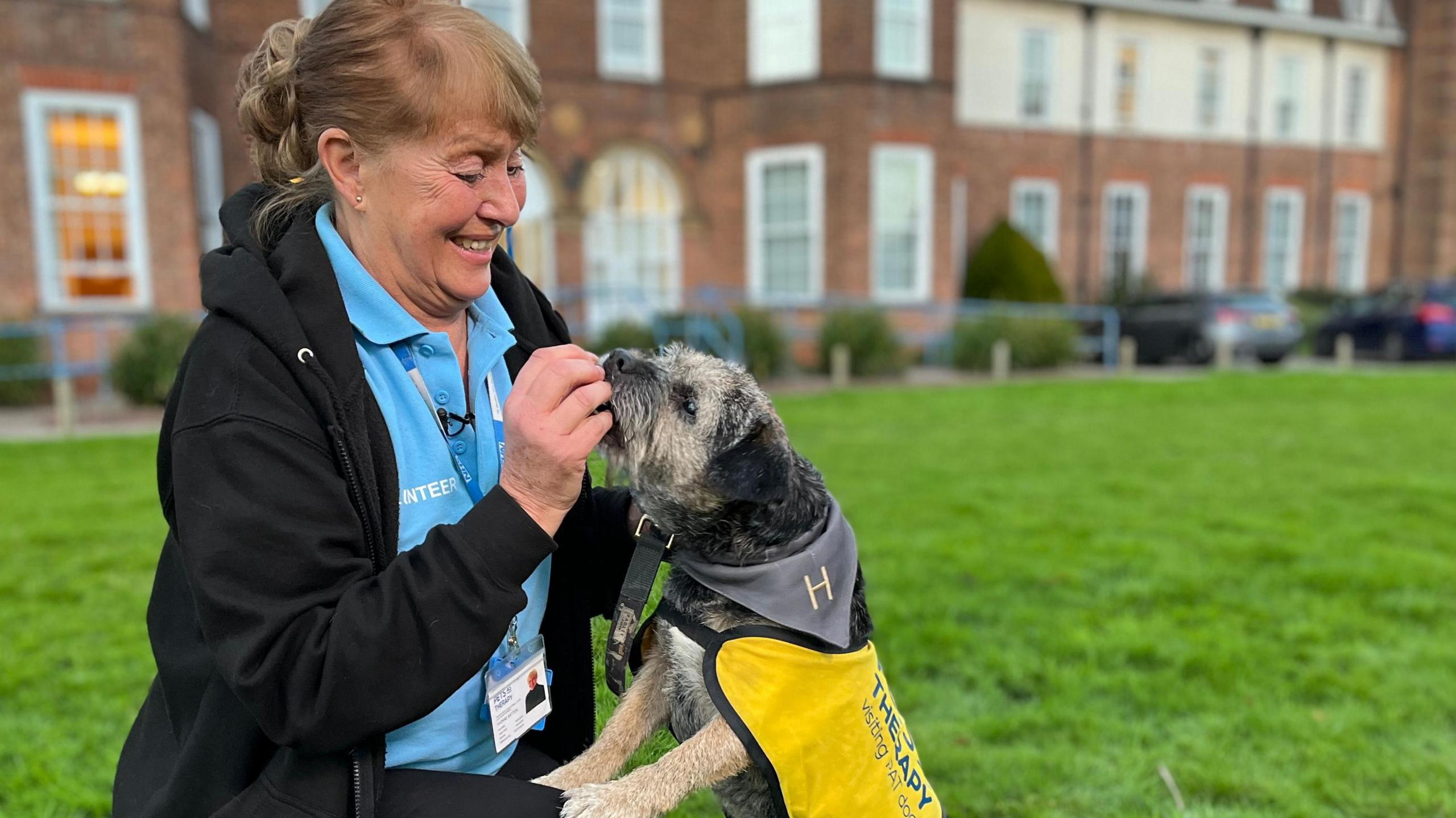
Yvonne Batten with Hugo, the longest-serving therapy dog at the hospitals in East Yorkshire
Barney has worked the most hours and his owner, Denis Lockwood, was the first to suggest taking PAT dogs into intensive care units.
Mr Lockwood, from Beverley, East Yorkshire, said he had seen "very sad situations", but Barney "takes the stress off things".
He described seeing a miraculous response in two patients who had been given a slim chance of recovery.
One, who had been unconscious and had not moved since arriving in hospital, reached out to stroke Barney.
Mr Lockwood said: "I've put the dog by them and they've stretched out for the dog. The first person that happened to, I had been told by the nursing staff he probably wouldn't recover.
"I'm not religious, but it's really unusual to see something like that and when you see the staff in tears, it really gets you."
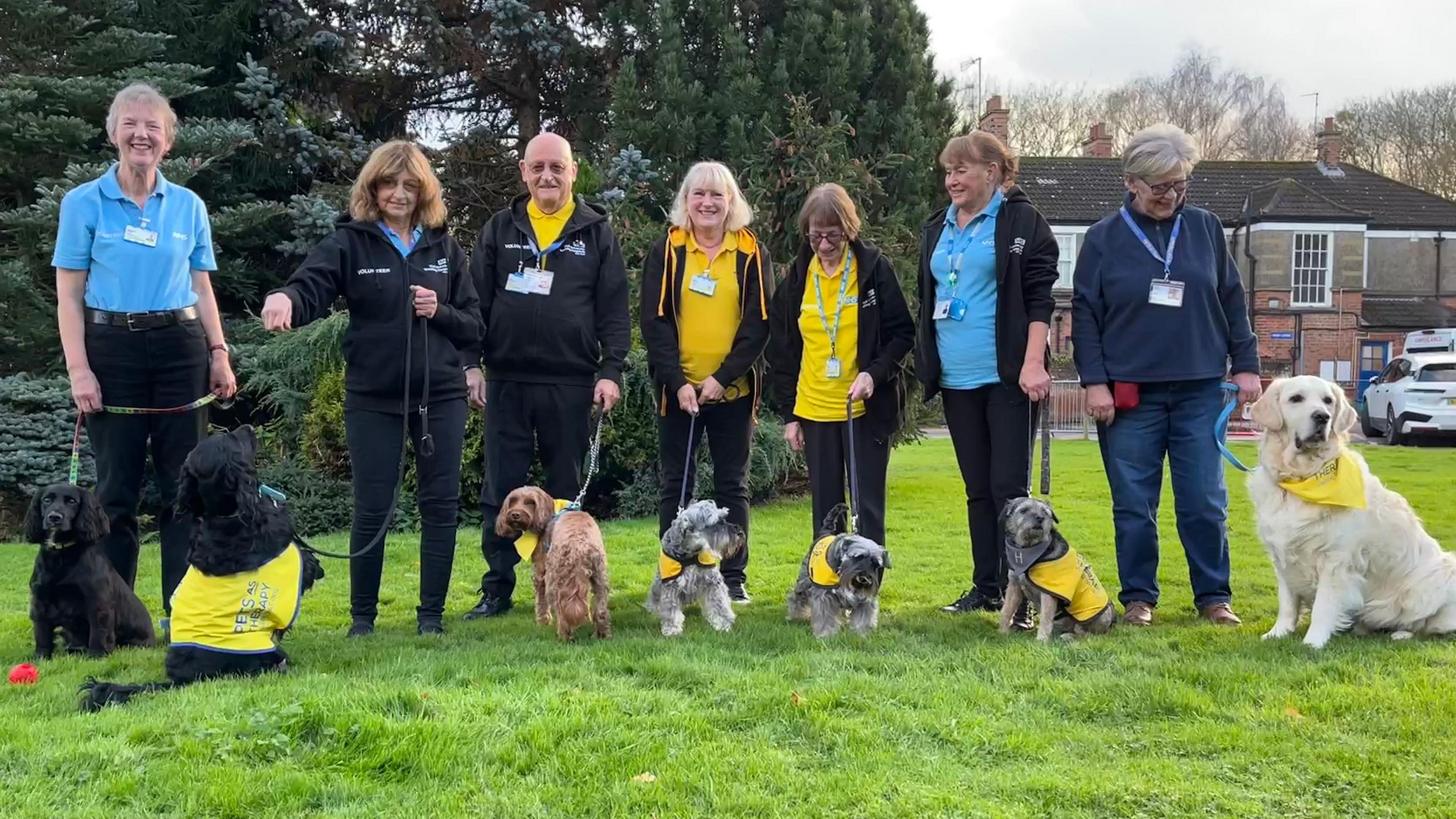
Denis Lockwood and Barney (third from left) with fellow volunteers and their dogs. From left, Christine Pictor and Molly; Mandy Wright and Harvey; Heather Sanders and Lotte; Gill Shillaker and Miss Boogie; Yvonne Batten and Hugo; and Dorothy Littlewood with Jake
Ms Hardcastle-Pearce said PAT dogs had "an air of magic about them".
She said: "When they come for their shifts, they put one foot in the hospital and the crowds are around the dogs straight away. They have a huge impact."
The dogs sometimes helped clinicians achieve results, she said.
On one occasion, a young patient had been refusing to take part in physiotherapy, but agreed to take a dog for a walk.
"He was very reluctant to do any physio that day, but through the power of the dog being there, they got him up, they got him walking, so that will aid his recovery to hopefully get him home," Ms Hardcastle-Pearce said.
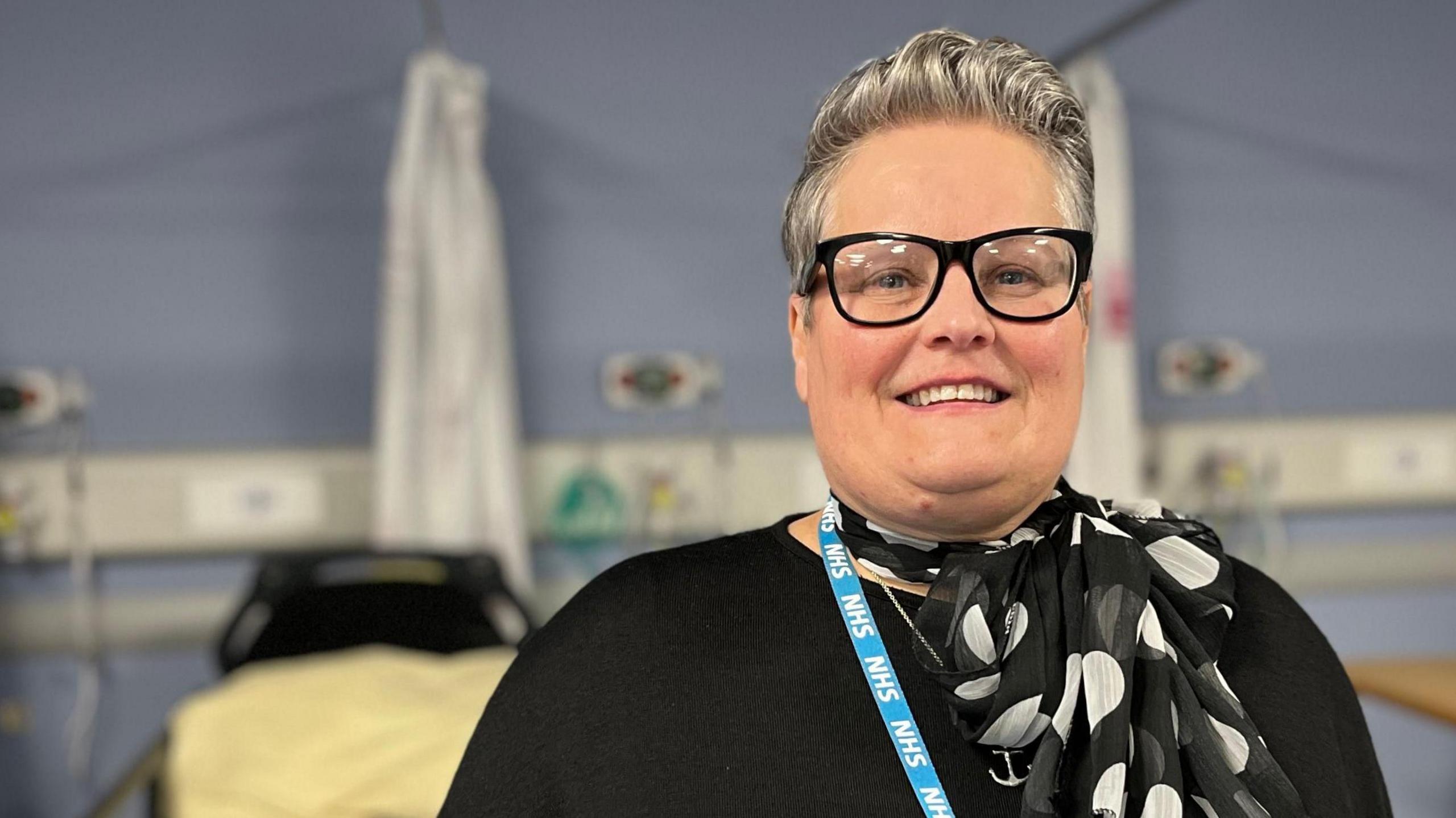
Rachael Hardcastle-Pearce says therapy dogs are making a big difference in hospitals
The BBC followed miniature schnauzers Lotte and Miss Boogie on a visit to the radiotherapy unit at Castle Hill.
They only managed a few yards before being stopped by a stream of patients and visitors.
Among them was Sarah Hutchinson-Winn, who was supporting her mother during radiotherapy, but is also receiving chemotherapy herself for metastatic breast cancer.
"They put a smile on your face," she said. "We usually see them when we come in, and they're so pleased to see you. It's soothing, just to have a little cuddle. It makes you feel at ease and it makes you smile."
Lotte and Miss Boogie are owned by Gill Shillaker, from Brantingham. She began volunteering after her sister received treatment at Castle Hill.
Ms Shillaker said the dogs were adored by patients and staff, with one doctor regularly bringing in treats.
"They often say 'oh you've made my day', and that makes my day as well," she said.
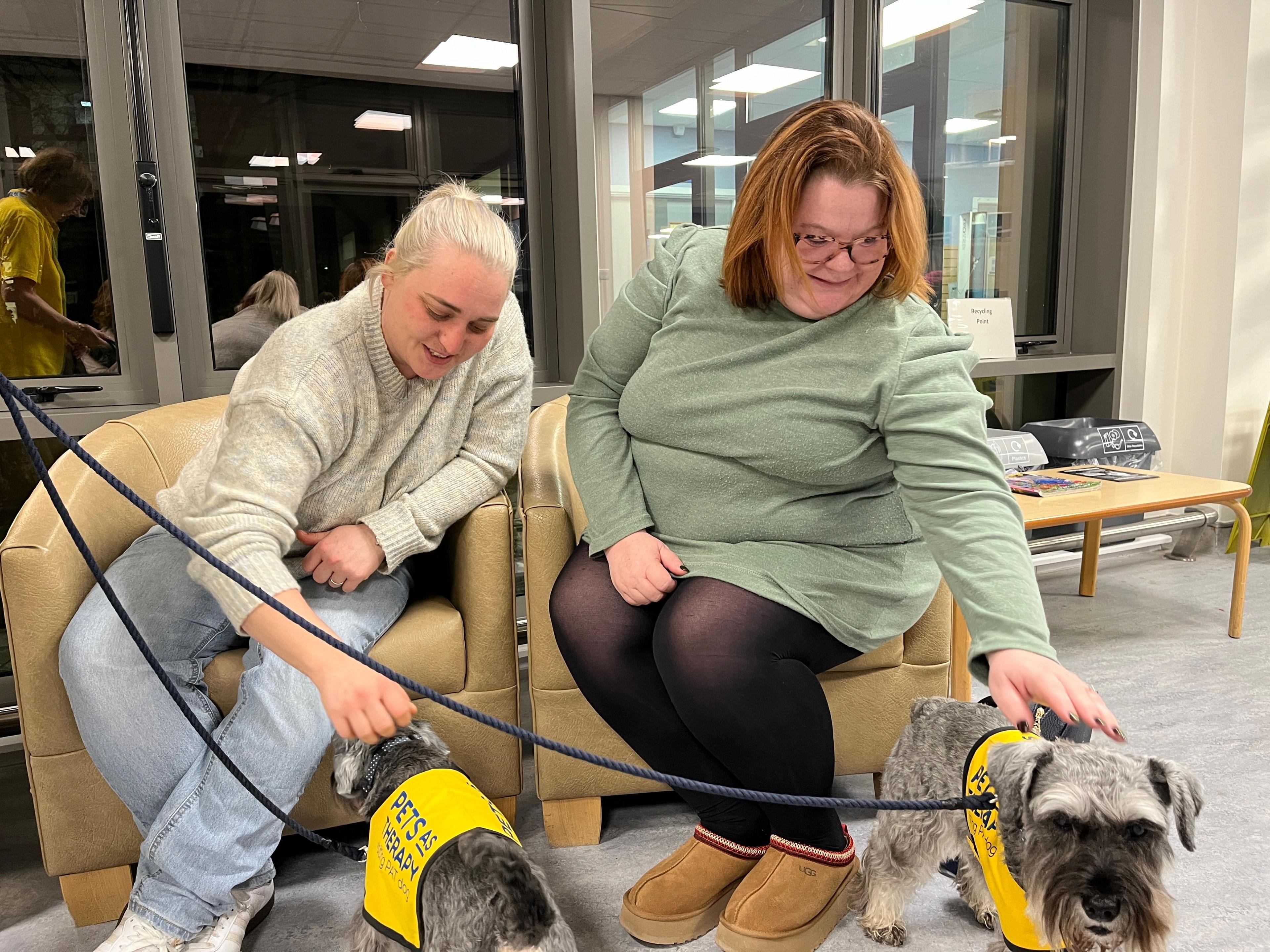
Cancer patient Sarah Hutchinson-Winn (right) meets Miss Boogie and Lotte
Eleven-year-old Hugo is a veteran of volunteering and the longest-serving member of the team.
The border terrier has spent more than two-and-a-half years visiting staff and patients, after six years of going into care homes.
His owner Yvonne Batten, from Hull, said care home staff were amazed to hear a resident had talked to Hugo, after presuming she had lost the power of speech two years earlier following a stroke.
It was "very rewarding" work, but "if Hugo didn't enjoy it, we wouldn't do it".
On a visit to the complex rehabilitation unit at Castle Hill, Hugo met patients with severe brain injuries.
Among them was Stephanie Lavarack, who looked delighted having not seen her own dog for weeks.
She said dogs were "better company than people" and was rewarded by Hugo with a lick of the face.
Taking it in good humour, she quipped "give us a kiss".
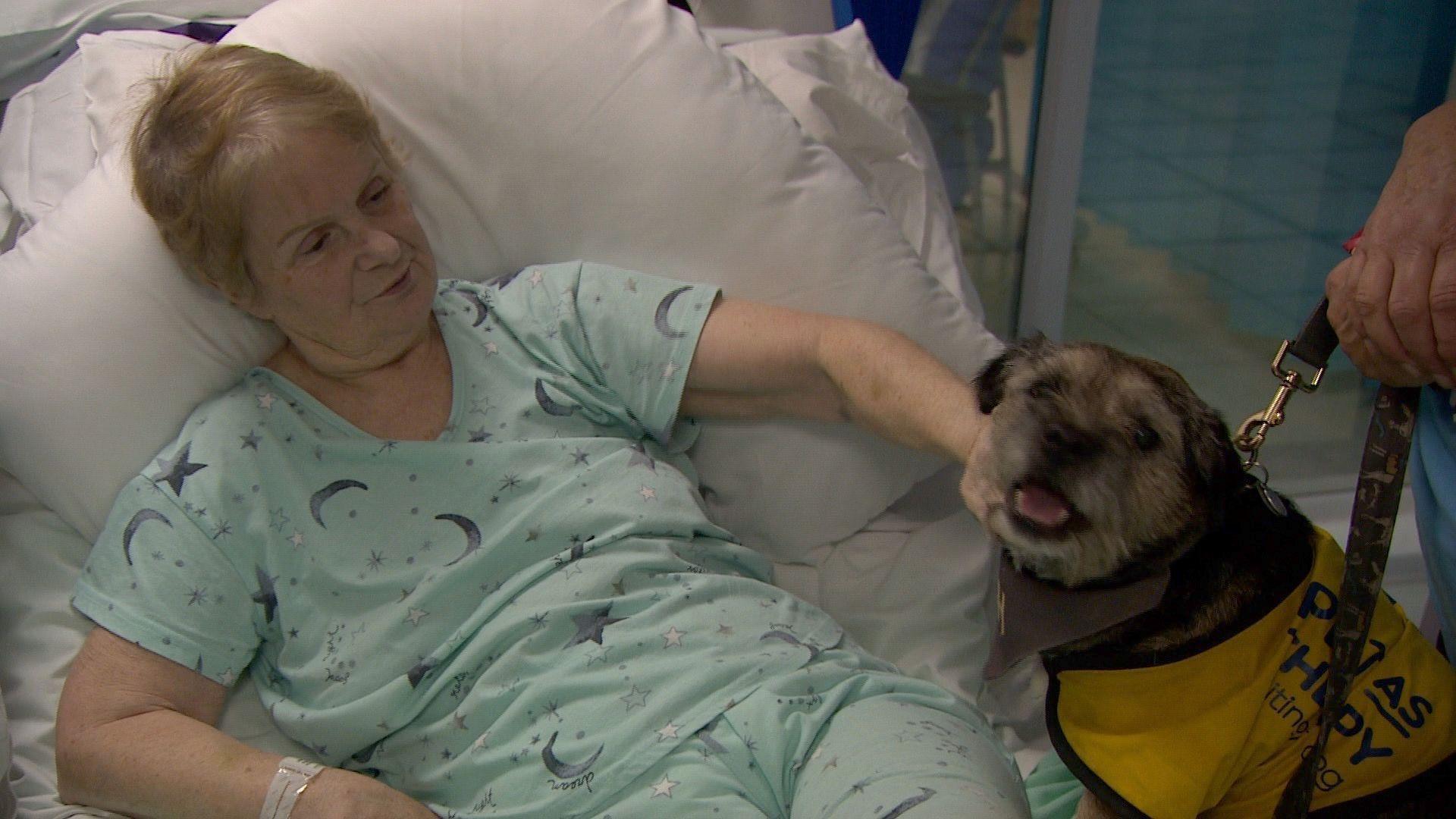
Hugo visits a patient in the complex rehabilitation unit
The latest recruit to the team is Jake, a four-year old golden retriever, who has just completed an assessment for PAT work.
He comes from impressive stock: his dad won best in breed at Crufts.
His owner Dorothy Littlewood, from Walkington, East Yorkshire, is a retired hospital worker and is excited to be returning as a volunteer.
"I know personally from friends and relatives who have been through tough times, it's been a game changer for them, having that visit from a therapy dog," she said.
This year, there were around 4,500 PAT dogs working in hospitals in England.
Hull Royal and Castle Hill hospitals are now looking for more recruits and hope to have 25 dogs going for walkies on the wards by next Christmas.
Listen to highlights from Hull and East Yorkshire on BBC Sounds, watch the latest episode of Look North or tell us about a story you think we should be covering here, external.
Related topics
- Published19 December 2023
- Published14 October 2021
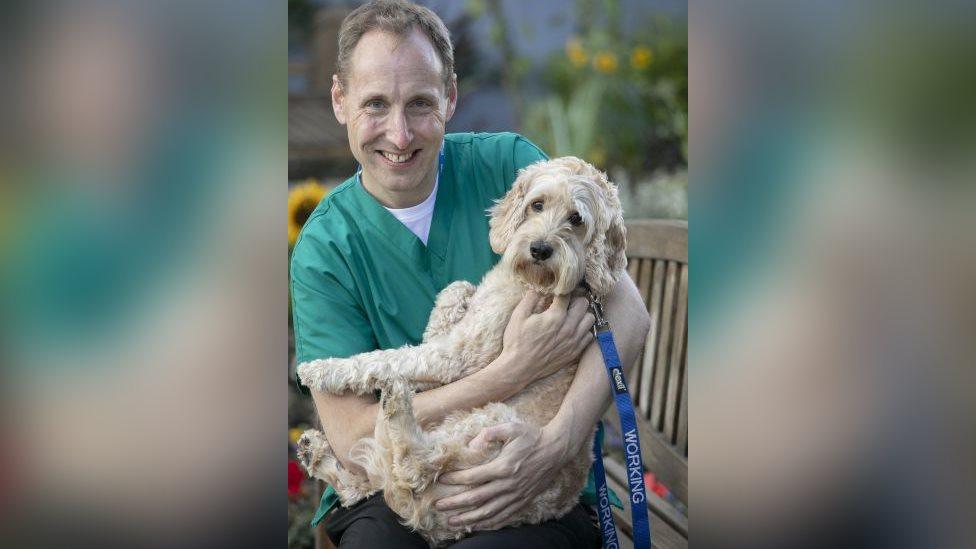
- Published27 June 2023
